9.1 Welcome to APES
advertisement
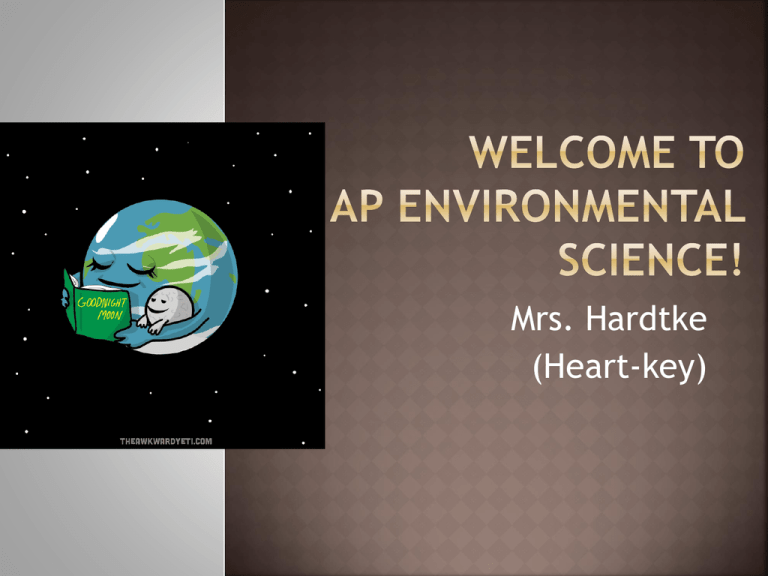
Mrs. Hardtke (Heart-key) When the seating chart reaches you, please write your name, as you want to be called. Go choose a book- we will discuss later On your note card, write: Name Email address you actually check Book # I like it when teachers: I hate it when teachers: 10th year of teaching (Eastlake, Renton, Here) Inquiry 10 and AP Environmental Science Bachelor’s in Biology from Whitman College, Masters in Teaching from U.W. Two kids- Tyson (5) and Robyn (3) 1 dog, 2 cats Favorite things: eating (almost anything), socializing, sports, celebrity gossip, trips I can determine the major concepts important to environmental science by examining current events. I can use pre-reading strategies to understand the format of the APES textbook. Environmental Science is NOT Environmentalism Sort the current events into 6-8 broad topics Choose a recorder to write your final results on the whiteboard You can include sub-topics Then we will see how close you are to the College Board outline! Next to each category, record how confident you are in your knowledge of each (5 = I’m ready for an AP test, 1 = I’ve never seen those words in my life) Put a star next to the ones you are most interested in. Sharing Time at the end! Questions for me? No set curriculum and labs “an inch deep and a mile wide” Focus on current events #1 fastest growing college majors = sustainability, environmental engineering, etc. Sustainable practices are showing up everywherePanera, Chipotle, Taco Time, College Cafeterias…where else? Please take a few minutes to read the course syllabus and safety contract I’ll then go over the highlights Due, signed, on Thursday/Friday (next time) http://swift.tahoma.wednet.edu/ths/mrshardtkes-chemistry-class Before Reading: Preview Chapter One, starting on page 1. What are the major features of the textbook? During Reading: What major points are being made in each section? Summarize each section in bullet points. After Reading: Take the practice AP multiple choice test for each module AND the end of the chapter. You can check answers the next day in class. Define any terms not already included in your notes. Due Date: Thursday, September 10th. Where? In section 2 of your lab book In class notes- typed on netbooks. Where will you save and organize them? Handouts- will be hole punched. Do you have a binder? Warm-Ups, book homework, labs- in a graph paper composition book. BUY ONE FOR FRIDAY! Also due next time: signed syllabus/safety contract. Professor Garrett Hardin, an Ecology professor at UCSB, published a famous paper in 1968 called “The Tragedy of the Commons”. Let’s piece together what the term means, with a story and lab activity! Listen intently as I read aloud “The Lorax” by Dr. Seuss. At the end of each section, answer the questions on The Lorax document found on my website. One per partner- save a copy as a google doc.
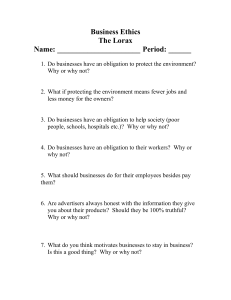
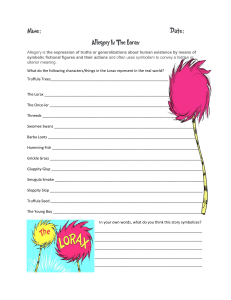
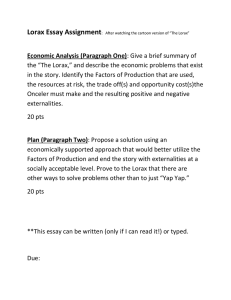
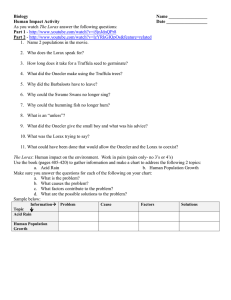
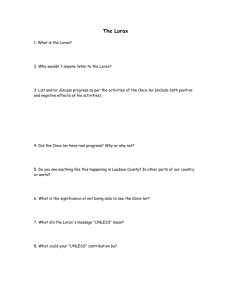
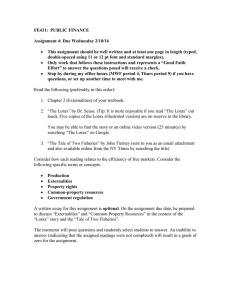
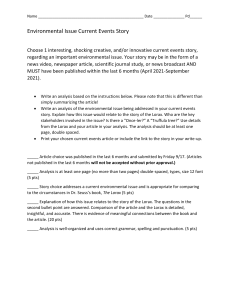
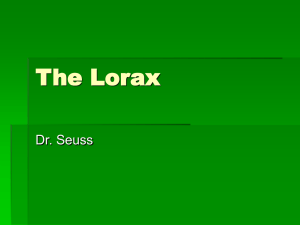

![The_Lorax_questions[1]](http://s3.studylib.net/store/data/008632596_1-e144bd3523e0dd849c2bc4ca9942deff-300x300.png)

